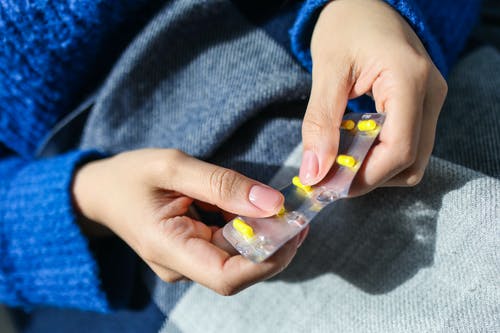Drugmakers who made a bunch of money last year may not do so well in 2022.
For drug monoclonal antibodies manufacturers were the recipients of more than $14 million in 2021, according to their year-end earnings reports. These include Eli Lilly & Co. at $2.2 billion, Gilead Sciences Inc. at $5.5 billion, Merck & Co. at nearly $1 billion, and Regeneron Pharmaceuticals at $5.8 billion. Now that there has been data released suggesting that COVID cases are down and the strands are getting weaker, many are wondering what will happen to these companies and how they will fare in 2022.
Moreover, variants of the virus continue to be present despite the use of monoclonal antibodies, proving that these drugs are ineffective and that they will likely phase out. The FDA updated authorizations of Eli Lilly’s bamlanivimab and etesevimab and Regeneron’s casirivimab and imdevimab, saying both monoclonal antibodies “can’t be used for people infected or exposed to omicron because they’re not effective.”
“None of the three monoclonals that are in the Regeneron cocktail show any activity whatsoever against the omicron variant,” Dr. Thomas Unnasch, a health professor at The University of South Florida, said. “Zero activity.”

Florida Governor Ron DeSantis announced last month that the state has 15,000 more doses of monoclonal antibody drug, Regeneron, available, even though it has proven to be ineffective. Eli Lilly has announced it is working on a new antibody treatment to fight omicron, but it will likely take at least another couple of months before one is approved for clinical use. Omicron, the most recent strand of the virus, is one that is milder than those that came before it, and the strand is also already dying down as the months roll on.
“By the time that monoclonal comes along, omicron is going to be history and God knows what we’ll have coming up the other side,” Unnasch said.
There have also been more therapies approved that work against the latest strand, including Pfizer’s antiviral pills Paxlovid and molnupiravir that help treat less serious cases. Veklury an antiviral treatment commonly used in cases of hospitalization, has now also been approved by the U.S. Food and Drug Administration (FDA) to be used in outpatient settings.
“We expect COVID treatment to evolve to oral direct antivirals, particularly once Paxlovid and molnupiravir become more broadly available in the coming months, which alongside waning case numbers should decrease the need for GILD’s Veklury,” RBC Capital Markets analyst Brian Abrahams said earlier this month.
Molnupiravir, developed by Ridgeback Biotherapeutics, generated $952 million in sales in the fourth quarter of 2021. Ridgeback, which is a privately held company, indicated it anticipated it would rake in $5 billion to $6 billion in sales this year.
In the meantime, state regulators are warning consumers not to take the ineffective antibodies unless they are certain they have a strand other than omicron. Providers should also not be pushing these drugs.
“Unless providers are certain they are still treating patients infected with the delta variant, they shouldn’t use [them],” said Dr. Mark McClellan, director of the Duke-Margolis Center for Health Policy.
Sources:
Monoclonal antibodies ineffective against omicron, according to studies


Join the conversation!